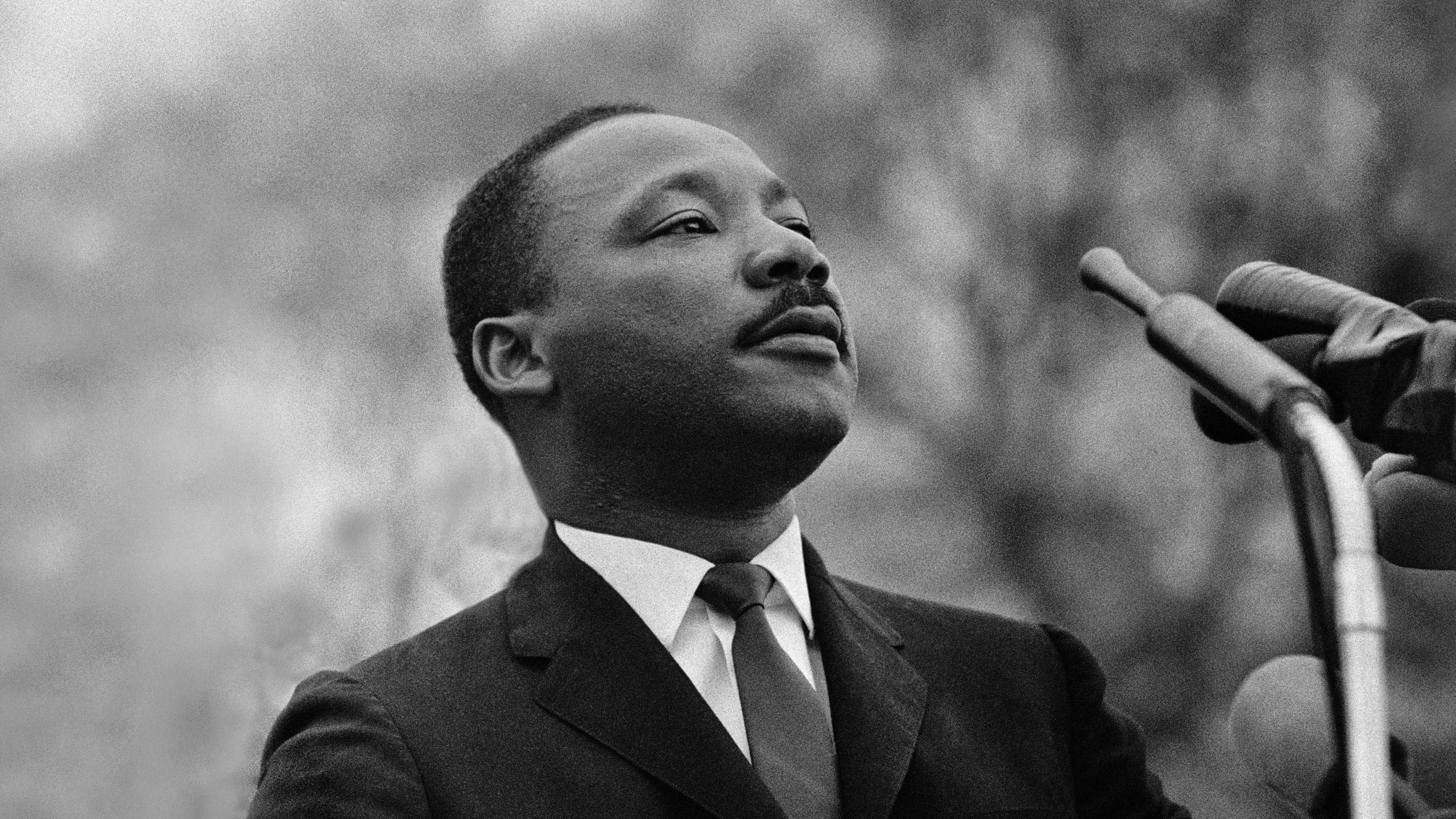Exploring the Life of a Leader: 5 Facts About Martin Luther King Jr.

“I have a dream that one day this nation will rise up and live out the true meaning of its creed: We hold these truths to be self-evident, that all men are created equal.” These stirring words, spoken by Martin Luther King Jr. during the landmark March on Washington for Jobs and Freedom in 1963, encapsulate the vision and dedication of one of America’s most enduring leaders.
Martin Luther King Jr. stands as a towering figure in the annals of history, renowned not only for his pivotal role in the Civil Rights Movement but also for his unwavering commitment to justice and equality. His leadership transcended racial boundaries and inspired a generation to fight against the deeply entrenched practices of segregation and discrimination. King’s legacy continues to influence contemporary social movements and his philosophy of nonviolent resistance remains a powerful tool for activists around the globe.
In this blog post, we delve deeper into the life of Martin Luther King Jr. by exploring five key facts that illuminate his journey, achievements, and the indelible mark he left on society.
Fact 1: Early Life and Education
Martin Luther King Jr. was born on January 15, 1929, in Atlanta, Georgia, into a family steeped in the African American Baptist tradition. His father, Martin Luther King Sr., was a prominent pastor, and his mother, Alberta Williams King, was a dedicated schoolteacher. This nurturing environment, coupled with the strong religious influence, played a crucial role in shaping his moral and ethical worldview.
King demonstrated exceptional academic prowess from a young age, which paved the way for his formal education. He enrolled at Morehouse College at the age of fifteen, where he was mentored by Dr. Benjamin Mays, an influential theologian and advocate for racial equality. After receiving his Bachelor’s degree in Sociology, King furthered his theological studies at Crozer Theological Seminary in Pennsylvania.
There, he distinguished himself as a top student and became deeply influenced by the teachings of Mahatma Gandhi. King’s academic journey culminated with a Ph.D. in Systematic Theology from Boston University, where his dissertation explored the concept of God in the thinking of Paul Tillich and Henry Nelson Wieman. This rigorous educational background equipped King with the intellectual foundation and oratorical skills that would later define his leadership in the Civil Rights Movement.
Fact 2: Role in the Civil Rights Movement
Martin Luther King Jr.’s involvement in the Civil Rights Movement marked a pivotal chapter in American history. As a prominent leader, he championed the principles of nonviolent resistance to challenge the systemic racism and segregation prevalent in the United States.
One of his earliest and most significant contributions was his leadership during the Montgomery Bus Boycott of 1955-1956. Sparked by Rosa Parks’ courageous refusal to give up her bus seat to a white passenger, the boycott saw the African American community of Montgomery, Alabama, unite in a year-long protest against segregated public transportation.
King’s eloquent speeches and steadfast guidance played a crucial role in sustaining the movement, which ultimately led to a Supreme Court decision declaring segregation on public buses unconstitutional. Another landmark moment was the 1963 March on Washington for Jobs and Freedom, where King delivered his iconic “I Have a Dream” speech to a massive crowd gathered at the Lincoln Memorial.
This event not only galvanized national support for civil rights legislation but also cemented King’s status as a symbol of hope and justice. Throughout his involvement in the movement, King’s strategic nonviolent protests and tireless advocacy were instrumental in the passage of the Civil Rights Act of 1964 and the Voting Rights Act of 1965, marking significant strides toward achieving racial equality in America.
Fact 3: The Force Behind “I Have a Dream”
The significance of Martin Luther King Jr.’s “I Have a Dream” speech cannot be overstated. Delivered on August 28, 1963, during the March on Washington for Jobs and Freedom, this speech stands as a cornerstone of the Civil Rights Movement and a defining moment in American history. Set against the backdrop of the Lincoln Memorial, King’s eloquent and vividly aspirational words resonated with the 250,000 people in attendance as well as millions more who heard the address through television and radio broadcasts.
The historical context of the speech—delivered during a time of intense racial segregation and discrimination—underscored the urgent need for social and legislative change. King’s visionary dream of a racially harmonious nation, where individuals would be judged by the content of their character rather than the color of their skin, ignited a renewed fervor for the struggle toward equality and justice.
The lasting impact of “I Have a Dream” is evident in its continued reference and reverence in cultural, educational, and political discussions, symbolizing the enduring quest for civil rights and inspiring successive generations to strive for a more inclusive society.
Fact 4: Nobel Peace Prize Recipient
In 1964, Martin Luther King Jr. reached a remarkable milestone in his fight for justice and equality by becoming the youngest recipient of the Nobel Peace Prize at the age of 35. This prestigious award was presented to him in recognition of his steadfast commitment to nonviolent resistance in the struggle against racial segregation and his exceptional leadership in the Civil Rights Movement.
The Nobel Committee acknowledged King’s profound influence in fostering peace and his unwavering efforts to achieve racial harmony through peaceful means. The significance of this recognition extended beyond honoring King as an individual; it underscored the global impact of the Civil Rights Movement and highlighted the power of nonviolence as a transformative approach to addressing social injustices.
King’s receipt of the Nobel Peace Prize served to further legitimize and amplify the efforts of the movement, inspiring activists around the world to adopt similar nonviolent strategies in their quests for justice and equality. This accolade not only celebrated King’s remarkable achievements but also reinforced the enduring importance of his vision for a more just and equitable society.
Fact 5: Legacy and Commemoration
Martin Luther King Jr.’s legacy continues to resonate powerfully in contemporary society, serving as a beacon of hope and progress in the ongoing struggle for civil rights and justice. His profound impact is honored annually on Martin Luther King Jr. Day, celebrated on the third Monday of January.
This federal holiday, observed with parades, community service projects, and educational programs, reflects King’s enduring influence and fosters a spirit of unity and activism. Beyond this significant day, numerous memorials and honors have been established to commemorate King’s contributions.
The Martin Luther King Jr. Memorial in Washington, D.C., with its impressive stone statue and inspiring quotes, stands as a testament to his vision and leadership. Furthermore, streets, schools, and institutions across the United States bear his name, ensuring that his message of equality, nonviolence, and justice remains prominent in the collective memory of the nation. These enduring tributes not only celebrate King’s achievements but also inspire future generations to continue the pursuit of a more equitable and just society.
Conclusion
In exploring the life of Martin Luther King Jr., we have delved into five significant facts that highlight his unparalleled impact on the Civil Rights Movement and his enduring legacy. From his pivotal leadership in the Montgomery Bus Boycott to his powerful “I Have a Dream” speech, King demonstrated an unwavering commitment to nonviolent resistance and racial justice.
His receipt of the Nobel Peace Prize at the age of 35 underscored his global influence and dedication to fostering peace through nonviolent means. King’s strategic advocacy was instrumental in the passage of landmark civil rights legislation, and his legacy continues to be commemorated through various memorials, educational programs, and an annual federal holiday.
As we reflect on these remarkable aspects of King’s life, it becomes evident that his message of equality, justice, and nonviolence remains profoundly relevant today. His visionary dream of a society where individuals are judged by their character rather than the color of their skin serves as a guiding light for ongoing efforts toward racial harmony and social justice.
We invite you to ponder Martin Luther King Jr.’s contributions and consider how each of us can further his vision for a more just and equitable world. By embracing and promoting the principles he championed, we can collectively strive to create a future that honours his legacy and realises the dream he so eloquently articulated.




